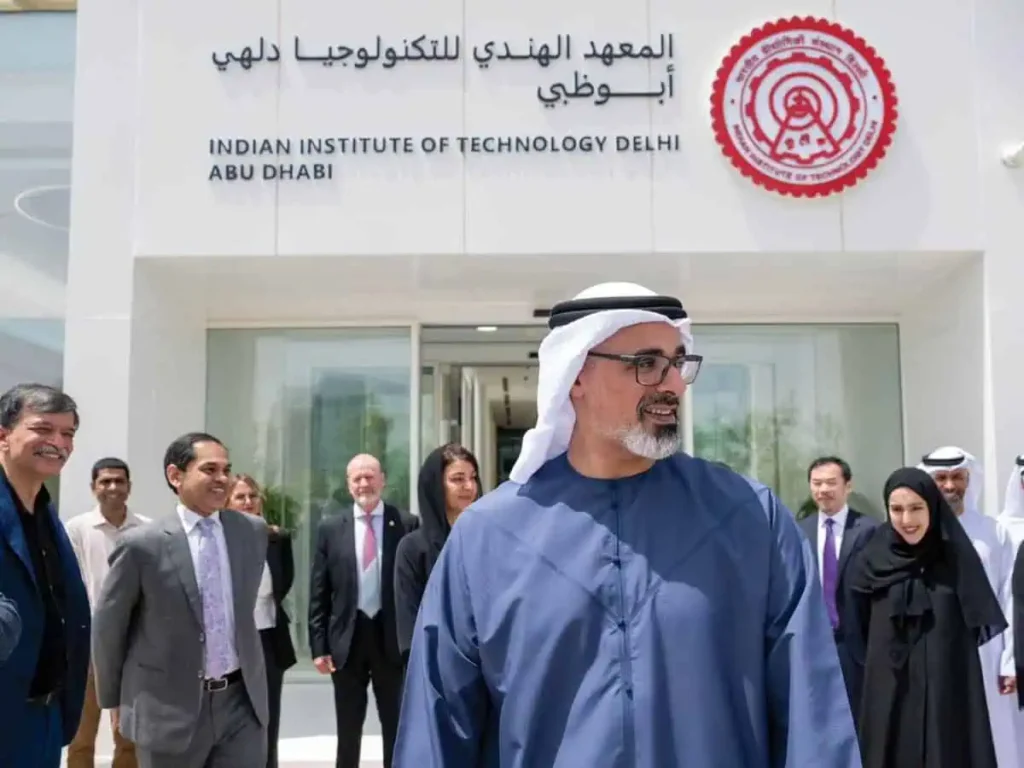
Image copyright belong to respected owner of Photo
New Delhi: The Indian Institutes of Technology (IITs), renowned for shaping India’s tech leaders, are now making waves globally. In less than a year after launching its first overseas campus in Zanzibar, Tanzania, IIT has expanded further by opening a second international campus in Abu Dhabi, UAE.
This new Abu Dhabi campus, under the aegis of IIT Delhi, was officially inaugurated by Sheikh Khaled bin Mohamed, the Crown Prince of Abu Dhabi. This development not only highlights IIT’s growing global presence but also strengthens the educational ties between India and the UAE.
The inaugural batch consists of 52 undergraduate students, chosen through the competitive JEE Advanced examination and the newly introduced Combined Admission Entrance Test (CAET) designed specifically for international candidates. These students will embark on their academic journey, pursuing BTech degrees in Computer Science & Engineering and Energy Engineering.
Dharmendra Pradhan, India’s Union Minister of Education, expressed his gratitude on the occasion. “The presence of HH Sheikh Khaled bin Mohamed bin Zayed Al Nahyan at the inauguration of the IIT Delhi Abu Dhabi campus marks a new chapter in India-UAE collaboration in higher education,” he remarked on X, the social media platform formerly known as Twitter.
This expansion comes as a result of a key agreement between Indian Prime Minister Narendra Modi and UAE President Sheikh Mohamed bin Zayed Al Nahyan. Signed in February 2022, this agreement laid the foundation for advancing cooperation between the two nations, with education and technology being primary areas of focus.
“IIT Delhi-Abu Dhabi is a symbol of the strong ties between our two nations, demonstrating how knowledge, science, and technology can foster mutual growth and global prosperity,” Pradhan added.
In addition to undergraduate programs, the Abu Dhabi campus will offer a Master of Technology (MTech) program focused on Energy Transition and Sustainability, signaling a commitment to addressing critical global challenges.
IIT Madras led the way in overseas expansion when it opened its first international campus in Zanzibar in November 2023. The campus currently offers a Bachelor of Science in Data Science & Artificial Intelligence and a Master of Technology in Data Science & AI, with an additional MTech program in Ocean Structures launching in 2024.
Further international campuses are reportedly in the pipeline, with potential locations in countries such as Nepal, Sri Lanka, Saudi Arabia, Egypt, Malaysia, and the UK. These global ventures align with India’s broader push to ‘internationalize’ higher education as outlined in the National Education Policy (NEP) 2020.
In 2022, India’s Ministry of Education also set up a special committee to explore the feasibility of Indian universities establishing overseas campuses. Prime Minister Modi has reiterated this goal, emphasizing that India aims to create such a robust education system that students no longer need to study abroad. Instead, foreign students would be drawn to India for their education.
IITs, long regarded as the pinnacle of engineering education in India, boast a star-studded alumni base that includes leaders like Alphabet CEO Sundar Pichai, former RBI Governor Raghuram Rajan, Flipkart founder Sachin Bansal, and Infosys founder Narayana Murthy.
Recently, IITs have once again dominated the National Institutional Ranking Framework (NIRF) rankings, with IIT Madras claiming the top spot, followed closely by IIT Delhi and IIT Bombay.




